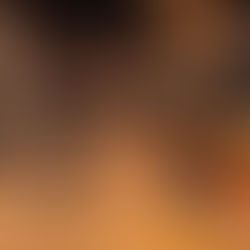I did this interview with a design agency a couple of years ago, as part of a series which talked to people in different areas of the creative industry - and just came across it again online. It still holds lots of value I think - especially in relation to the commercial photography side of my business, so thought you might be interested to read it. Article below and also online here.

Q1. When you meet with a new or existing client, what do you set to establish from the first meeting or brief and what are some of the key questions you would typically ask them?
There are both practical and creative aspects to this part of the process. Firstly you need to understand how the images will be used, so you can make sure they are correct from a technical perspective – so are they just going to be used on social media or will they end up on a huge billboard poster?! Beyond that it’s about the style of the finished items and the audience they are aimed at. So, depending for example on whether the images are going into a consumer publication, or on a business website and so on – as the style of both the photography and the image processing may need to be totally different.
Q2. Once you have established a brief with a client, describe the creative process you go through in understanding the brief and could you elaborate on what influences the decisions you make as an individual on what will be delivered from a creative point of view?
When taking photographs for a client, the creative decisions you make are very much based on what they need for a specific commercial purpose. So as an individual, you don’t always get the same freedom as you would when going out to take a landscape image of your own choosing - which would be framed and hung on the wall for example. But you can of course use your experience to suggest styles, angles or approaches that you think would work best to meet a brief, given your past experience in areas of photography which provide more freedom for the photographer.
Q3. Do you draw inspiration for projects from similar creative work or from any other sources for that matter?
Absolutely. I think photographers are always looking around them at different types of imagery which we see as part of our everyday lives. Not so much the subject matter, as this varies all the time depending on the project - but certainly on the creative side of how an image looks. Different styles such as coloured filters, heavy contrast, intentional under or over exposure, mono vs colour, unusual shooting angles and so on – there are so many different approaches you can take, even with the same image. Once you chat to a client and find out more about the audience and what effect they want to achieve, the more you get a feel for what the right creative style will be.
Q4. How would you define a successful project?
One where I feel that I have done the best job I could, and one where the client is happy with the images provided. For complete satisfaction, you need both - and even if the client is happy, I would only be 100% happy if I felt that I had managed to capture the best possible images on the day, given all of the other factors which are outside of my control – such as the weather for example!
Q5. Do you feel some sense of responsibility to educate clients so to speak on what works and what doesn’t work in regards to creative output? For example, assisting the client in thinking about their target audience and providing real life examples of why a specific piece of work did or didn’t resonate with the audience?
Definitely – and I think this comes from my background as a copywriter, which was my ‘day job’ for many years. In that role, you have to understand the audience and the purpose of the finished item in a wider marketing context. Without that you cannot create the right message or the right tone - and photography is the same. I can see why some people may think of it as a separate entity - an image is an image and that’s it - but I don’t think we can afford to be that insular as photographers.
For example, I did a shoot recently for fashion retailer, so it was vital to understand the demographics of their audience and to get a feel for what style of imagery would most appeal to them. In this instance they had a very defined idea, which was great – but if the client was unsure, or asked for an approach which I felt was not the best one, I would definitely say something. For example suggesting we try some alternative options as well while on the shoot, so I had covered all the bases. I would then also potentially show them different image processing options before we settled on a final style.
Q6. What’s your favorite part of the creative process and why?
This may sound odd, but I think the processing has the edge. I absolutely love getting out there with the camera and taking the images, and making sure I get the best out of every session - whether commercial work, landscape photography or even a street shoot. But to an extent, at that stage you’re really just capturing the ‘data’. It’s what you do with it next that really turns it into the finished creative piece.
As with most professional photographers, I shoot what they call ‘RAW’ files rather than Jpegs which means the camera doesn’t do any processing internally. This gives you more data and more detail to work with, and lets you be even more creative with the finished image. And it’s those fine adjustments of shadow, highlight, colour, clarity, sharpness and so on which really bring the image to life. I’m not talking about huge changes – such as stripping in a different sky, or adding a retro Instagram style filter - just making the best of every area of the image. It’s a hugely rewarding process, but is only possible if you made a good job of capturing the data in the first place!
Q7. Photography can obviously be something that can be learned, certainly from a technical viewpoint but just how much would you say is it a natural gift?
Now this is a very interesting question. I run 1-2-1 tuitions sessions and I always say that it’s easier to tech someone if they have ‘an eye for a good picture’ – as composition is harder to teach than the technical aspects of using a camera. I’m not saying the technical side is easy, and it can take quite some time before the basics of aperture, shutter speed and ISO really become second nature – but they are at least well defined ‘facts’. So it’s certainly a more structured process, with clearly defined rules to it.
With creative composition, it’s a very different thing. For example, you can teach the rule of thirds, or why negative space is important, but whether a shot looks right and ‘works’ at the end of the day is a totally separate thing. Sometimes breaking all those rules is what makes an image really stand out and tell a story, so having that ability to know why one image works and another doesn’t is definitely a gift to an extent. But that doesn’t mean you cannot learn those principles and when to apply them, it just takes lots of time spent out there shooting and then deciding what you like and what you don’t - and why.
Q8. What advice would you give to anyone looking to make a career in line with what you specialise in?
Photography has certainly gained a whole new lease of life since the advent of the smartphone camera, and I am often asked if I think this is a good or a bad thing. Some purists think it’s a bad thing as now ‘everyone thinks they are a photographer’ and it’s devalued the industry, but I tend to disagree. If having access to a camera all the time means that more people become interested in photography as an art form – whether taking images or just looking at them – that has to a be a very good thing in my book.
As to advice on taking it to the next stage, I would say that it first comes down to some harsh reality. Theoretically anyone has the ability to learn how to use a camera and then set themselves up as a photographer, but actually making a living at it is hard work. As with any profession, you have to not only do it well, you also have to be a business manager, a marketing specialist, a networker, a PR whizz and everything else as well that comes with setting up and running a business.
Beyond that you also have to have many photography skills. My income comes from a mix of tuition services, commercial commissions, print sales, book sales and stock image licenses. You have to be able to turn your hand to all, or most, of these if you want to make photography your main career. But it is definitely possible – so I would never want to put anyone off. My decision to take this path came from a wonderful quote which reads ‘The secret of happiness is to find something you love doing, and to get someone to pay you for doing it’. So if you love photography, then get out there and find a way to make that possible!







Comments